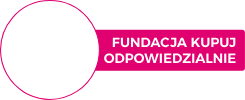Häagen-Dazs is a brand owned by Nestlé, which mainly produces ice cream. In 2021, 16.3 percent of Nestlé's key raw materials were produced more sustainably, with 76.3 percent of its eggs coming from cage-free farms. The company is ensuring that all palm oil used in its products will come from more sustainable sources by 2023, and all coffee and cocoa by 2025. Nestlé also plans to achieve and maintain an entire supply chain free of deforestation (by 2022 for products such as meat, palm oil, paper, soy and sugar, and by 2025 for coffee and cocoa). Another Nestlé goal is to source 20% of key ingredients through regenerative agriculture methods by 2025 and 50% by 2030. Some of the brand's products are Rainforest Alliance certified for the ingredient cocoa. Häagen-Dazs brand products are mostly simple in composition without food additives such as colorants, emulsifiers or stabilizers. Each flavor starts with four simple ingredients - cream, milk, eggs and sugar. And many of the most iconic flavors, such as chocolate, coffee, strawberry and vanilla, contain only five ingredients. The ice cream is sold in multi-material paper + plastic packaging. Häagen-Dazs aims to make its packaging reusable or recyclable by 2025. 39.5% of product packaging for all Nestlé brands is made from recycled and/or renewable materials. Nestlé operates worldwide, both in the United States and in Europe, Africa and Asia. It has an ISO 9001 quality management system, and has an ambitious goal of achieving zero net greenhouse gas emissions by 2050. In Germany, the first pilot "climate dairy farm" has been established to support efforts and aspirations to achieve zero greenhouse gas emissions. Nestlé has pledged to plant 20 million trees by 2030. The company runs social and environmental projects on water management, among other issues. In Pakistan, it has partnered with the government to support local farmers in more sustainable practices that focus on regenerative agriculture. The Nestlé Group directly supports and provides training to its suppliers and farmers. In Ghana and Côte d'Ivoire, it pays cash incentives to farmers for enrolling their children in school or switching to more sustainable farming practices (such as agroforestry or crop diversification). In the past 8 years it has trained 15,000 women in East Africa. By 2025, it plans to train 25,000 young people in Honduras in good coffee production practices. In addition, Häagen-Dazs has a half-acre bee-friendly garden (Honey Bee Haven). Its goal is to provide bees with a year-round food source, raise public awareness of the plight of honey bees and encourage visitors to start their own bee-friendly gardens.
 DOBRE ZAKUPY
DOBRE ZAKUPY DOBRE ZAKUPY
DOBRE ZAKUPY
